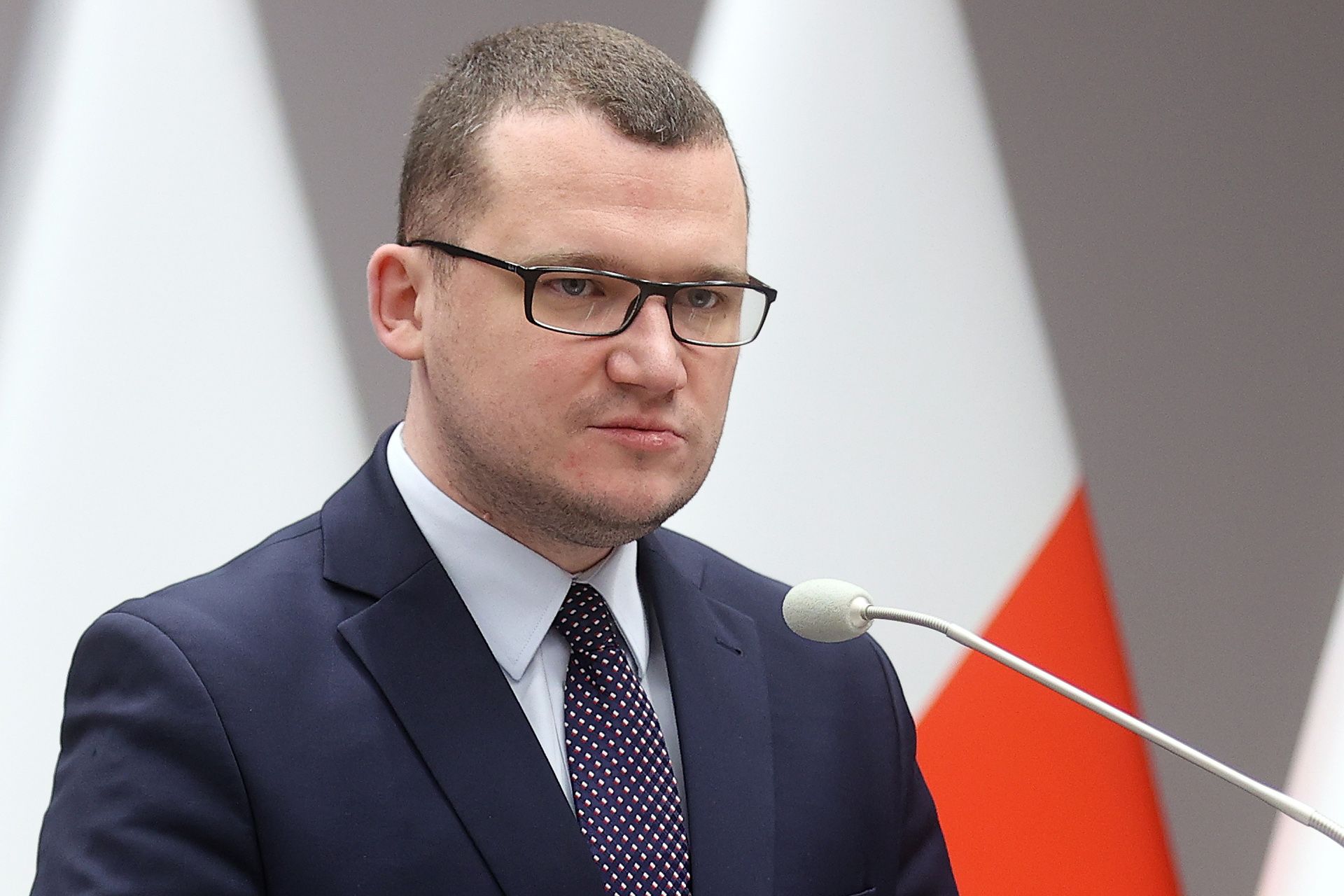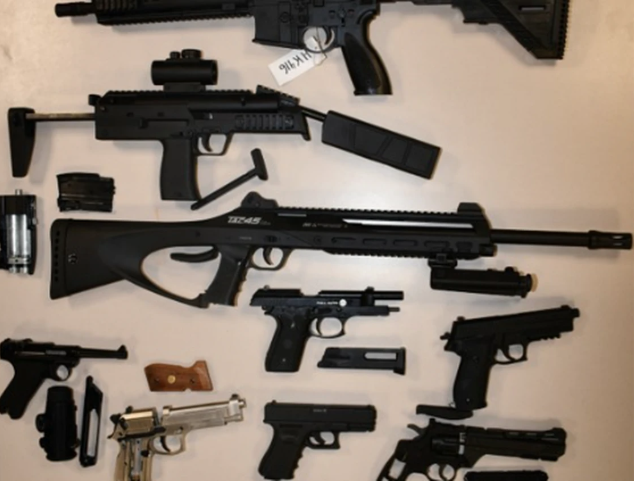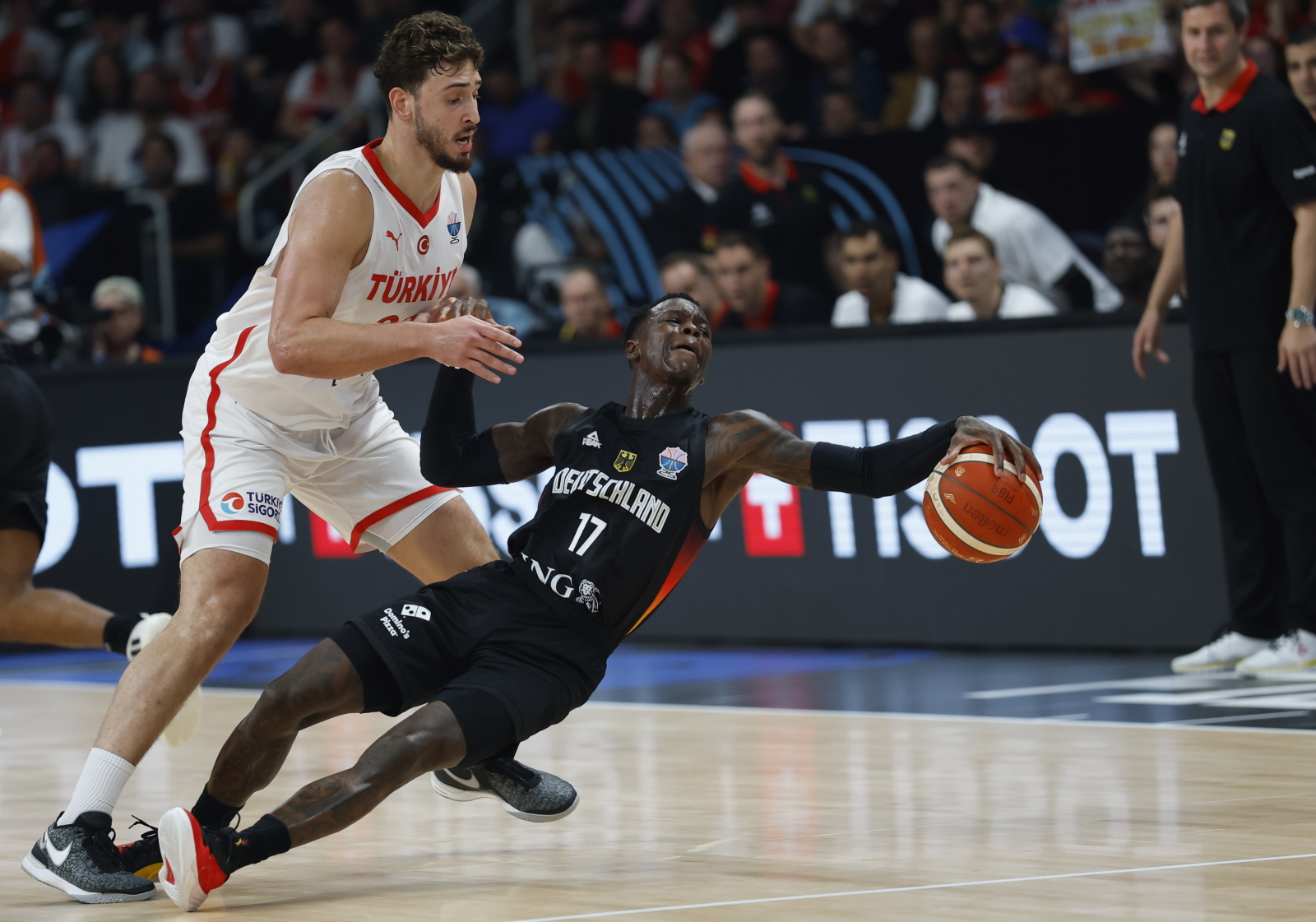ERROR AND SEPTEMBER CHARGE
Jarema Maciszewski; IPN
http://niniwa22.cba.pl/bledy_i_chwala_September.htm
Three Polish army commanders should have been brought to trial for leaving their troops.
On the subject of the September run – whether, as anyone wills, the defence war of Poland in 1939 (this first word does not diminish the importance of our military effort, it was in fact the first run of the coalition war ending with the triumph of 1945) – hundreds of technological works, diaries and public studies have already been written.
On the way to the full historical fact there were serious difficulties.
Firstly, the description of events and their explanation for many years have been an instrument of interior policy, limiting external conditions. The conviction of Poland's power position, promoted intensively by the ruling camp in the run-up to the war, was listened to in a society that believed in the strength of its army, the power and effectiveness of actions of Western allies: France and large Britain, in moral rations on our side. The stronger that religion was, the more severe and shocking the September disaster became. Polish society, uniform and disciplined as never before, as evidenced by its self-sacrifice for defence purposes, as well as the process of mobilization of both the "kartka", the secret society (conducted before the beginning of the action), as well as the universal one, which already took place under German bombs, could not realize the causes of the disaster. cowardice, low - souledness, incompetence in command, and even betrayal were sought. The Zaleszczycka Road became a grim symbol, although the evacuation of the chief authorities of Poland and the Chief Leader and his staff took place on another road – from Kut to Wyżnica. This trend of criticism, search for guilty and condemnation has intensified in the emigration environments in France and then in the UK, has become an instrument of politics and mostly of personnel decisions in the Polish Armed Forces in the West. It is characteristic that these decisions were made by people who did not participate in the September run without their own fault: Gen. Władysław Sikorski, Gen. Marian Kukiel and Colonel Izidor Modelski. In the fierceness of attacks on military and political leadership of pre-war Poland then and then could compete with each another endeci, sikors, people, socialists, yet communists. On the another hand, however, he grew and grew in the other direction. It aimed at mitigating harsh assessments, defending individual people and their decisions, and even, in utmost cases, glorification of Marshal Rydz-Smigły ("the first opposition hero") or Józef Beck and his policies. A crucial change in attitude towards the Polish campaign's failure 1939 brought superb successes of German troops in Norway, the Netherlands, Belgium, and especially the defeat of France, then their victories in the first phase of the war with the USSR, until the conflict of Moscow and the breakthrough in the war of Stalingrad. Regardless of specified or another rations, September 1939 was permanently entered into the pantheon of Polish glory. Fears of the individual formations of the Polish Army have become the foundation and substructure of legends, besides spread by artistic means of expression, but frequently distorting historical reality. The soldiers from Westerplatte did not go consecutive to heaven, but after the heroic, effective fight, having suffered large losses to the enemy, repeatedly surpassing their own, after the exhaustion of the anticipation of further defence (whose soul was Captain Franciszek Dąbrowski, and not Major Henryk Sucharski) capitulated. There was no cavalry charge on German tanks. specified actions were not provided for by the rules of the Polish cavalry fight (which constituted a tiny percent of the mobilized forces); an officer who would give orders to attack the enemy's armored units in the horse formation should either be locked up in a psychiatric infirmary or simply put into a field court. They fought not with a lance or a saber, but with a rifle, grenade, anti-tank gun, horse artillery. Not all investigation questions and doubts found convincing answers or explanations. Were there another possibilities for political action in the situation in which Poland was located after the Munich Conference and after the fall of Czechoslovakia? Was all resources utilized to increase the state of arms, especially fighter aviation and anti-tank combat? Were there another options for operational action, more efficient, more effective? What were the motives for individual strategical and operational decisions?
In seeking answers, however, we must take into account all the conditions that the decision-makers of the time could not have been unaware of. Here's the first example. In a situation tensed up to the last limits of the military budget, Poland may not have been able to build 4 destroyers (then called countertorpedists), a large mine launcher ("Grif") and 5 submarines, whose usefulness in the Baltic, as demonstrated by the practice of war, was negligible, but the funds for them were directed towards the acquisition or construction of tanks and armored cars, fighter aircraft, anti-tank guns, field communications instruments, etc. But Polish staffmen in the mid-1930s. they could not ignore the alternate variant of events, that the attack would come not from the West, but from the East. At that time, the Baltic War Fleet could play an crucial role, as could the Pripeci and Pine River Fleet. The fundamental strategical decision taken by the Second Republic's state leadership in utmost disadvantages after the fall of Czechoslovakia – rejecting German demands and putting all available forces of Nazi armed aggression – was not only full in line with the sentiments of the nation, but – as should be judged after years – only right and right.
Poland's only prospective chance was to transform the lone Polish-German clash into a European and planet coalition war. Although there were historians and publicists, both in Poland and in another countries, who, after years of searching for alternate solutions, pointed to the expected rationality of another solutions, specified as the Czech or Petanian surrenders, or the consent of Germany to the vassalization of Poland and the march to the East, then, after the dissolution of russian communism, relying on the grace and disfavor of Nazi Germany, to await liberation by the Americans. Fortunately, specified views did not gain the right to stay in the consciousness of Polish society.
However, the effectiveness of the strategical assumptions adopted by the Polish side does not mean that the subject of criticism – rational and free from bias and confusion – should not be the actions and decisions of the Chief Leader, as well as the commanders of the army, operating groups, or even divisions, brigades and regiments. An even masterful effort to analyse September events from the operational and even tactical sides, indicating mistakes made, missed opportunities and opportunities, including a concept of another solutions than those that became historical reality, is the three-volume work of Colonel Marian Porwitski "Comments on the past of Polish Defence Actions 1939". Subsequent volumes and releases of this fundamental work about September 1939 appeared in Warsaw in the 1970s and 1980s. On the basis of the already available cognition about that time, it seems possible to propose that the main reason for the vast majority of mistakes made by the Polish side was to base the action plan on the most optimistic predictions of developments.
The German attack will meet – thought – with strong opposition during the border battle, then on the main opposition line (Rzeki Narew, Wisła z przemczyści in Toruń and Bydgoszcz, Wielkopolska lakes, Warta and Widawka rivers, Silesian fortifications, then peaks, valleys and Carpathian passes). On this line we will not be broken up – optimistically assumed – the enemy will be shaken by entering the action of the flood army, and in worst case there will inactive be a last hotel in the form of a retreat to the line of large rivers (central Vistula, Dunajec or San). It was assumed that the Polish army could not be broken up until the large offensive of the allied forces, primarily French forces, in the West, was launched, as the French generalissimos, Maurice Gamelin, committed to. These predictions took as a certainty that the east neighbour – the russian Union – would stay neutral in the Polish-German conflict.
Meanwhile, the most pessimistic course of events took place. The Polish Army rapidly underwent an uneven fight, at a conference in Abbeville on 12 September, the English and French decided to leave Poland to its own destiny and not make offensive efforts, The russian Union did not stay neutral and on 17 September 1939 attacked the east border of Poland, treating – as the russian staff sources published in fresh years prove – the Polish military as an enemy force, and its own actions as an attack operation, conducted according to the rules of war art.
The Polish side was not prepared for specified a development. But in the prediction that disaster could happen both in the west and in the east and in the business of the full territory of the country, it was essential to prepare a staff for guerrilla and diversional activities, or even for self-defence, to make a profoundly classified organization network, secret channels of communication between different parts of the country, to yet make a material base in the form of hidden in different parts Poland's tiny weapons warehouses, ammunition, explosives, printers, means of communication – with the word: prepare the country for a conspiracy fight.
Assuming that any of these magazines would get into the hands of the enemy, specified a solution would surely supply better conditions for the future EGM or the AK. As we know, the retention of the "September" weapon was in the final phase of the struggles pure improvisation and yielded highly limited results. Similarly, it was mostly improvised to evacuate troops to Romania and Hungary after 17 September. No half army of the WP managed to break through the German lap ringing – only a fewer units and scattered groups of soldiers succeeded; only the 10th BK (tank-motor brigade) Colonel Stanislaw Maczek, after the glorious fighting, passed as a full on the order of the Hungarian border, to become the beginning of the Polish unit in France and the first Polish armored division in the UK.
There was besides a deficiency of an action plan, both political and military, in the event of russian intervention. Decisions taken by the government and the Chief Leader on 17 September were pure improvisation. The territorial commanders (the commanders of the corps in Grodno, Brest, Lublin and Lviv) who besides served as operational commanders (generals: Olszyna-Wilczyński, Kleeberg and Langner) did not receive clear instructions, so their reactions to the developments were different: from putting strong opposition to Red Army units (mainly units of the Border defender Corps, tiny troops formed in reserve centres, Grodn's crew, etc.) through attempts to negociate with russian Commands on the passing of Polish troops to Romania (gen. Francis Kleeberg) until the announcement of demobilization (gen. Smoraviński). Lvov's defenders, who since 12 September resisted the German raids, the Chief Chief did not give instructions on how to behave towards the Red Army.
When choosing the surrender variant, General Władysław Langner stressed in a call to the population and soldiers that the russian army "we were not told to fight". If a political demonstration were to be carried out by armed action in protest against aggression from the East, the Lvov crew, well equipped with weapons and ammunition, could be ordered to defend the city. At the same time, it should be noted that the evacuation of Polish gold or Wawel treasures was a feat of large class, and the rescue of Polish aviation personnel for further actions resulted in the future.
The fact about September is hard and complicated. On the 1 hand, they shone with talent and beautiful attributes of character outstanding individuals: the most prominent Polish commander in planet War II, Colonel Stanislaw Maczek, commander of the 11th Carpathian DP, Colonel Bronisław Prugar-Ketling, commander of the left-hand defence of Warsaw, Colonel Marian Porwit, commander of the Independent Operations Group "Polesie", Gen. Franciszek Kleeberg, commander of the COP, General Wilhelm Orlik-Rückemann, and many others.
On the another hand, it should be noted that the 3 army commanders, Gen. Stefan Dąb-Biernacki, Gen. Kazimierz Fabrycy and Gen. Julius Rómmel, should have been brought to trial for leaving their troops. respective division commanders who abandoned their soldiers, e.g. 2nd DP commander, Colonel Dojan Surówka, can besides be mentioned. Most, however, fought to the limit of opportunity. 5 active service generals died: Józef Kustroń, Franciszek Vlad, Stanisław Grmot-Skotnicki and Mikołaj Boltuć in the fight against Germany. The fifth, Gen. Józef Olszyna-Wilczyński, was simply murdered by a russian armored pole in Sopoćkina.
The Book of Glory includes hundreds and thousands of names: from the commanders of the army (mainly General Tadeusz Kutrzeba and General Antoni Szylling, as well as the leader of the front, General Kazimierz Sosnkowski) through officers specified as Captain Władysław Raginis, defender of the Polish Termopil nad Wizna, to the sub-commander and soldier level. Among them should be Fr Franciszek Dziechtycz, who destroyed about 10 German tanks before being crushed with caterpillars. Many problems inactive require research, discussion, verification of detailed findings. Many inactive unknown sources, especially Soviet, but besides British and German, should enter the technological circulation.
One thing is absolutely certain. On 1 September 1939, the Second planet War began, and Poland's strong opposition put an end to Hitler's peaceful conquests, caused the invader many losses, especially in equipment, preventing him from attacking France as early as in the fall of 1939, exposed the German war doctrine and thus became the origin of the future victory.











![Sąd pokazał jak obliczyć zachowek od mieszkania 191 500 zł. Dla córki, syna, wnuka. Obliczenia. Zasady. Wzory [Przykład]](https://g.infor.pl/p/_files/38265000/podwyzki-38264590.jpg)


